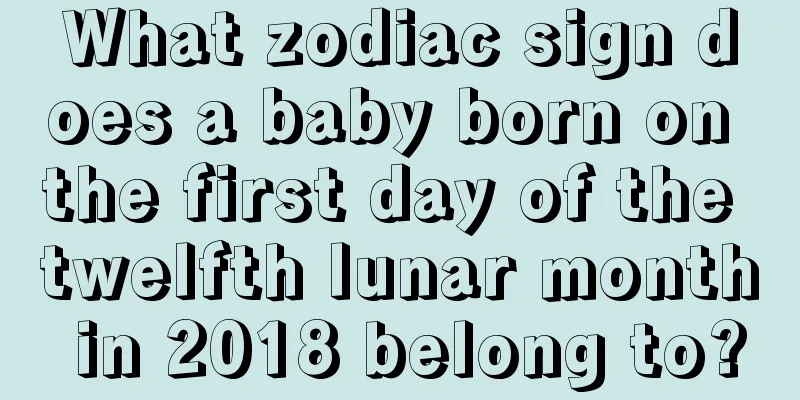What does the “Chu” in the Chushu solar term mean? What does Lesser Heat, Greater Heat, and End of Heat mean?

Chushu is the fourteenth solar term of the twenty-four solar terms, marking the end of the hot summer and the beginning of autumn in meteorological terms. Do you know what the "Chu" in the Chushu solar term means? July is the harvest season, and the air is filled with the scent of autumn fruits. We should be doubly happy in such a good time. Shuimoxiansheng.com will interpret the relevant information about July in the lunar calendar of 2020 for you.What does the “Chu” in the Chushu solar term mean?"Chu" means hiding or ending, so "Chushu" means the end of the hot summer, reminding people that the summer vacation is over and cooler weather is coming. "Chu" means end, which means that the heat is about to pass and the summer heat will end on this day. The temperature in most parts of my country will gradually drop.What does Lesser Heat, Greater Heat and End of Heat mean?】The meaning of the Chushu solar term <br /> Chushu means "out of summer heat", which means the heat is leaving. Chushu is the 14th solar term among the 24 solar terms in the lunar calendar. It occurs on August 23 of the Gregorian calendar, when the sun reaches 150° of the ecliptic longitude."Collection of Explanations of the 72 Lunar Calendars: End of Heat" End of Heat, mid-July. Chu means to stop. The summer heat ends here. The eagle is a sacrificial bird, and the eagle is a righteous bird. Autumn belongs to the metal element, which represents righteousness among the Five Elements. The metal energy is chilling, and eagles, sensing the energy, begin to hunt other birds. However, they must offer sacrifices first, just like people do sacrifices before eating. Do not strike an animal that is pregnant, so it is called righteousness. Autumn is the beginning of yin, so it is said that heaven and earth begin to be solemn. The crops are ripe. The wheat one. The general name for grain and straw. Also, rice, sorghum, millet, and sorghum are all grains. The onset of heat is called Deng. 】The meaning of the Lesser Heat solar term "Collected Explanations of the 72 Solar Terms in the Lunar Calendar" says: "The sixth month... Heat means heat. There are large and small heats. The beginning of the month is small, the middle of the month is big, and now the heat is still small." Heat means hot, meaning that the weather is starting to get hot, but it has not reached the hottest yet. This basically applies to most parts of the country. Although Lesser Heat is not the hottest season of the year, it is followed by Greater Heat, the hottest season of the year. There is a saying among the people that "Lesser Heat and Greater Heat are like steaming above and boiling below." Due to excessive sweating, high consumption, and fatigue, people cannot neglect the maintenance of their bodies. At this time, the plum rain season in the Yangtze and Huaihe River basins is about to end, midsummer begins, the temperature rises, and the summer drought period begins; while North China and Northeast China enter the rainy season, tropical cyclone activities become frequent, and the number of tropical cyclones landing in my country begins to increase. After the Lesser Heat, the south should pay attention to drought resistance, and the north should pay attention to flood prevention. Crops across the country have entered a stage of vigorous growth and field management needs to be strengthened. The signs of Lesser Heat: the end of the plum blossom season and the beginning of the dog days. 】The meaning of the Great Heat solar term <br /> The Great Heat is one of the 24 solar terms in the lunar calendar, when the sun is at 120° of the ecliptic longitude. During the Great Heat period, Chinese people have the customs of drinking Fu tea, drying Fu ginger, burning Fu incense, and drinking mutton soup. "Collected Explanations of the 72 Seasonal Changes" says: "The Great Heat is in the middle of June. Heat is hot and can be divided into small and large heat. The beginning of the month is small, the middle of the month is big, and the heat is still big now." Its climatic characteristics are: "When the Big Dipper points to Bing, it is the Great Heat. At this time, the weather is much hotter than the Lesser Heat, so it is named the Great Heat." The Great Heat solar term is around the middle of the "Three Hot Days", the hottest period of the year, with the highest temperature and the fastest growth of crops. At the same time, various meteorological disasters such as drought, flood and wind disasters are also most frequent in many areas. "Tongwei Xiaojing Yuanshenqi" states: "Fifteen days after the Lesser Heat, the Big Heat is in the middle of June. The Small Heat and the Big Heat are divided into Big and Small in the extreme heat. The Small Heat is after the beginning of the heat and the Big Heat is after the full moon." This is around the middle of the dog days of summer, the hottest period of the year in most parts of China, and also the period when heat-loving crops grow the fastest. The Chinese working people divide the Great Heat into three stages: "The first stage is that rotten grass turns into fireflies; the second stage is that the soil starts to become moist and hot; the third stage is that heavy rains occur from time to time." There are more than 2,000 species of fireflies in the world, which are divided into aquatic and terrestrial. The terrestrial fireflies lay eggs on dead grass, and during the Great Heat, the fireflies eggs hatch, so the ancients believed that fireflies turned from rotten grass; the second stage is that the weather starts to become hot and humid, and the land is also very humid; the third stage is that there are frequent heavy thunderstorms, which reduce the heat and humidity, and the weather begins to transition to the Beginning of Autumn. During the period from the Beginning of Heat to the Autumnal Equinox, you should also pay attention to:1. The Beginning of Heat has two external evils: "heat" and "dryness". Therefore, in this season you should go to bed early and get up early. Going to bed early can restrain the yin energy, while getting up early can expand the yang energy. In autumn, it is best to fall asleep at 9 to 10 pm and get up at 5 to 6 am. You should take a nap at noon, which is beneficial to maintaining your energy.2. Do not sleep with the window open, and cover your abdomen with a thin blanket to prevent your spleen and stomach from getting cold, and prevent colds and diarrhea. 3. In terms of diet, it is advisable to eat more salty food, less spicy food, and avoid bitter food to nourish the spleen and stomach. 4. When exercising and keeping fit, choose activities with less physical exertion and avoid excessive sweating, which will damage the yang energy. The Yellow Emperor's Classic of Internal Medicine says: Nourish yang in spring and summer, and nourish yin in autumn and winter. Only by following the natural order can you avoid getting sick in autumn and winter. |
Recommend
Is the 16th day of the sixth lunar month in 2017 an auspicious day to open a new store?
Introduction: Everyone who opens a store hopes tha...
Is it okay to register for a marriage certificate on the Ghost Festival in 2019?
Nowadays, more and more young people are getting “...
Which day of the year is the Beginning of Autumn in 2021? Have the dog days of summer ended in the beginning of autumn in 2021?
The dog days are the hottest weather in the year. ...
Is it possible to put up the beams on December 11th of the lunar calendar in 2018? How good or bad?
Before the middle beam is carved, it can be placed...
Is July 16, 2021 a good day for the beginning of summer? Is it suitable for a haircut or shaving?
Orchids are fragrant in July, so July is called th...
What can’t you do on the 13th day of the first lunar month in 2018?
The first month of the lunar year is the first mon...
Analysis of the fate of girls born on the ninth day of the third lunar month in 2021
There is a certain relationship between a girl'...
Is May 20th of the lunar calendar in 2021 suitable for funerals? What is the hexagram?
The feet are steaming with the hot earth air, and ...
Is the seventh day of the fifth lunar month in 2018 suitable for burial? What is the hexagram of the day?
The lunar calendar is one of China's tradition...
Is it not suitable to open a business on August 22, 2020?
Introduction: It is necessary to choose an auspici...
What to eat during the summer solstice? What can you eat during the summer solstice to clear away heat and relieve summer heat?
The food suitable for eating in different seasons ...
When does the beginning of winter begin in 2019? The difference between Beginning of Winter and Winter Solstice
At the beginning of winter, we entered winter and ...
What are the auspicious days for marriage in August of the lunar calendar in 2020?
Introduction: In the traditional culture of our co...
Analysis of the auspicious and inauspicious times and the taboos for the 42 hours of the 9th lunar month in 2020
Analysis of the auspiciousness and inauspiciousne...
Is it taboo to start construction on the day before the beginning of summer in 2020? When does the beginning of summer begin and end?
Introduction: It is also necessary to choose an au...









